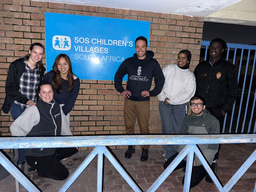Reflection: Summer 1 Research

Exploring Childhood Adversity, Aggression, and Self-Regulation: A Mediation Analysis
Supervisor: Dr. Ruth Speidel, Department of Psychology, University of Toronto Mississauga
I am grateful to have completed my research project this summer under the supervision of Dr. Ruth Speidel and the guidance of both Dr. Melis Yavuz-Müren and the entire Toronto Laidlaw staff. Independent research is excellent for developing leadership skills, but it can be quite isolating at times. Therefore, the goal of my reflection paper is to help other scholars feel less alone in their experiences.
Initial Project Goals
- Explore the origins of kindness among children 2 to 3 years of age within low socioeconomic families.
- Utilize a multi-method approach including observations, behavioural tasks, physiological assessments, and questionnaires.
- Identify protective factors from those who experience childhood adversity but remain kind to themselves and others.
Challenges
The company that was supposed to provide the physiological equipment was unable to do so due to logistical reasons. The delivery of said services was initially delayed a week, followed by another. By the third week, when data collection was supposed to start, I became aware that the delivery of the required equipment was postponed indefinitely altogether. Due to my research being an independent part of a larger scale research project, any work involving human participants was stopped until the successful delivery of said physiological equipment. Therefore, midway through my project, I had to completely reassess my research plan.
Achievements
Adaptability within a time-constrained, research environment. Due to the logistical situation described above, I had to improvise my way into fulfilling Laidlaw’s research expectations of me. This required an immense amount of self-kindness; I profusely thank my supervisor, Dr. Speidel, along with Yvonne from the Toronto Laidlaw team, for their reassurances throughout. With my self-belief intact due to their support, I utilized my backup plan (originally setup in case of COVID-related issues) and continued my research. Prior to starting my research, I had secured permission to utilize my supervisor’s lab’s archival data from a caregiver questionnaire that was completed by my population of interest between 2020–2022. This data was originally going to be used by the lab for other purposes, but the pandemic had derailed those plans. As secure as one’s project might initially seem, I highly recommend having an emergency research plan.
Confidence to take on more challenging tasks. Due to my research being shifted from in-person data collection to archival data analysis, I had a lot more time than anticipated. Therefore, I took this opportunity to advocate to my supervisor for tasks that usually get assigned to senior researchers. I leveraged my ability to be adaptable as a selling point for being able to take on such tasks. This led to me being able to work on behavioural codebooks—documents that explain how researchers should code participant behaviour within a lab setting (e.g., if the participant’s child is offered a gift and researchers want to know if it is happy or sad, a codebook could state how to define “happy” or “sad”. For instance, “happy” could mean “child has smiled for at least 3 seconds”). I also requested to monitor our lab’s email on a daily basis; lead a team of research assistants in designing a protocol that explains how to use the lab’s equipment; tested and troubleshooted various software used for participant questionnaires; and led discussions during lab meetings.
Statistical proficiency. Although I felt grateful to have access to this archival data that, quite literally, saved my Laidlaw project, this gratitude soon turned to frustration during my statistical analysis. I had identified three variables that were of interest to my original research question (adversity, aggression, and self-regulation), but too many participants had not answered questions relating to one of them. In simple terms, this meant that I had to do some extra tests before I could confirm that the data for that variable was still usable. Had I ever done anything like this? No. Was I scared? Yes. Did it work out in the end? Yes. I recalled reading articles about unethical research analysis and how some researchers purposely ignore tests that their data fails—allowing to them to have simpler statistical analyses. I drew upon my belief in ethical leadership to power me through my statistical challenge. I knew I was a fast learner so, by breaking it down bit by bit, I was able to understand the next steps that I had to do to verify my data. My supervisor was a great help throughout this portion, and I thank her again for her guidance. In the end, I learned the intricacies of not one statistical program (SPSS), but two (Mplus). Without this data obstacle, I would have most likely not learned about Mplus until much later. Now that I have, I actually prefer it for statistical tests that I would do elsewhere—there is always a positive to be drawn during challenging times.
Next Steps
As can be seen, my research summer was a roller coaster of emotions. I survived excruciatingly dire moments where I questioned my identity as a researcher, and ended up delivering a paper that I am extremely proud of. If I could have hypothetically picked between keeping my original research approach, or getting to do all of these senior tasks and learn new skills, I would have picked the tasks in a heartbeat. At the end of the day, my goal this summer was to become a better researcher and leader—not to deliver exactly what I said I would last April. I learned a great leadership lesson involving putting one’s pride aside and rebuilding plans when necessary, without judgment. I had to overcome dark moments where I felt like an impostor and a failure (i.e., deluded thoughts of “I am the first and only Laidlaw Scholar to have anything go wrong with their project). That, again, is why I want to write this reflection piece. For those of you who thought that the world was crumbling beneath your laptops, I see you, I hear you, and we survived. You are not alone.
![[Closed] LiA Opportunity: SOS Children's Villages Cape Town – Summer 2026](https://images.zapnito.com/cdn-cgi/image/metadata=copyright,format=auto,quality=95,width=256,height=256,fit=scale-down/https://images.zapnito.com/users/647804/posters/9db789af-7f05-417f-ab56-098d23e845d5_medium.jpeg)


![[Closed] 📢 Last-Minute LiA Opportunity: Join Me in South Africa for a High-Impact Project at SOS Children’s Villages! 🌍](https://images.zapnito.com/cdn-cgi/image/metadata=copyright,fit=scale-down,format=auto,quality=95,width=256,height=256/https://images.zapnito.com/users/647804/posters/7fbf1b11-ab87-4b78-97ac-faf35c6ff39f_medium.jpeg)

Please sign in
If you are a registered user on Laidlaw Scholars Network, please sign in